17 TREES BEARING “GREEN GOLD” DIVIDE CARNARVON
Jalba Dann talks about the Gubinge Trees.
September this year is the fruiting season for gubinge tree’s in Australia’s north.
But 17 gubinge trees in Canarvon won’t be picked this season due to an almost decade-long dispute over the tree’s rightful owners.
Planted on the Department of Forestry land, the small group of trees has divided the town of Carnarvon.
Nyul Nyul man Jalba Dann, and the Carnarvon Men’s shed are the two parties in dispute, with the trees sitting on government land.
Jalba Dann in 2015 beside the gubinge trees (Source: ABC)
Dann would like to see the full rights of the tree’s return to him and his family, as he said he is the man who brought the trees to Canarvon.
The men’s shed has denied comment.
WHAT IS GUBINGE?
Gubinge native to the Kimberley and Northern Territory top end is one of the traditional foods for the Nyul Nyul people.
A small light green plum, the fruit has a sour taste and tough skin to chew through.
Despite its small size the Northern Australia Aboriginal Kakadu Plum Alliance, say gubinge, also known as Kakadu plum has more than five times the amount of vitamin c in an orange.
Gubinge, also known as Kakadu plum is in high demand due to the high price per kilo.
The fruit has been sold to beauty companies and food businesses. Currently, they are looking into the possible pharmaceutical benefits of the fruit.
Bushfoods are a growing industry (Source: Kimberley Wild Gubinge)
THE TREE’S JOURNEY TO CARNARVON
In 2011 Dann stumbled across a DVD about the gubinge. After watching the DVD, he came up with the idea to try to start a plantation of the Kimberley fruit in Carnarvon.
Mr. Dann went down to the Department of Primary Industry and Regional Development (DPRID) to begin the process of bringing trees down to Carnarvon which was succeeded in 2011 when 15 gubinge trees were planted on the Department of Forestry land.
During this time Dann was the chairperson of the men’s shed and worked at the police station and brought both organisations into the process of bringing the trees to Canarvon as part of a project to connect disadvantaged youth back to their culture.
Dann alleges at this time there was an understanding between all parties involved he would be the prime owner of the trees.
Years later, the conflict came to head in Canarvon when Dann went to DPRID to access the trees when he was told by staff they belong to the men’s shed.
Now, Dann is currently trying to reclaim ownership of the trees and alleges the gubinge tree was gifted to him as a Nyul Nyul man.
To prove his ownership, Dann wrote a letter of support signed by traditional owners from around the Kimberley.
When shown to the chairperson of the Men’s Shed, Dann alleges the letter was called a “joke”.
“You have to respect traditional owners”.
The trees which are currently planted on Department of Forestry land have been used by Canarvon’s Men’s Shed for the past six years.
DEPARTMENT SAY TREES DO NOT BELONG TO ANY INDIVIDUAL
DPRID has said they will continue to work with the parties involved to come to a suitable resolution that will benefit the broader Carnarvon community.
While the DPIRD confirms Mr. Dann’s involvement in the project, they deny the trees belong to any individual person in the community.
“Correspondence indicates the trees were originally donated by Kimberley TAFE to the Carnarvon Police and Community Youth Centre, rather than any individual, on the understanding they were for the benefit of the community.
While there was believed to be some consultation on the movement of the trees with the indigenous community in Broome, it is difficult to assign ownership of a tree that is native to such a large portion of Australia”
DPIRD has refused to provide the correspondence mentioned.
Carnarvon Men’s Shed chairperson, John Oxenham said that he would have rather have sorted the issue face-to-face through DPIRD, but has denied any further comment.
Kimberley TAFE has denied comment.
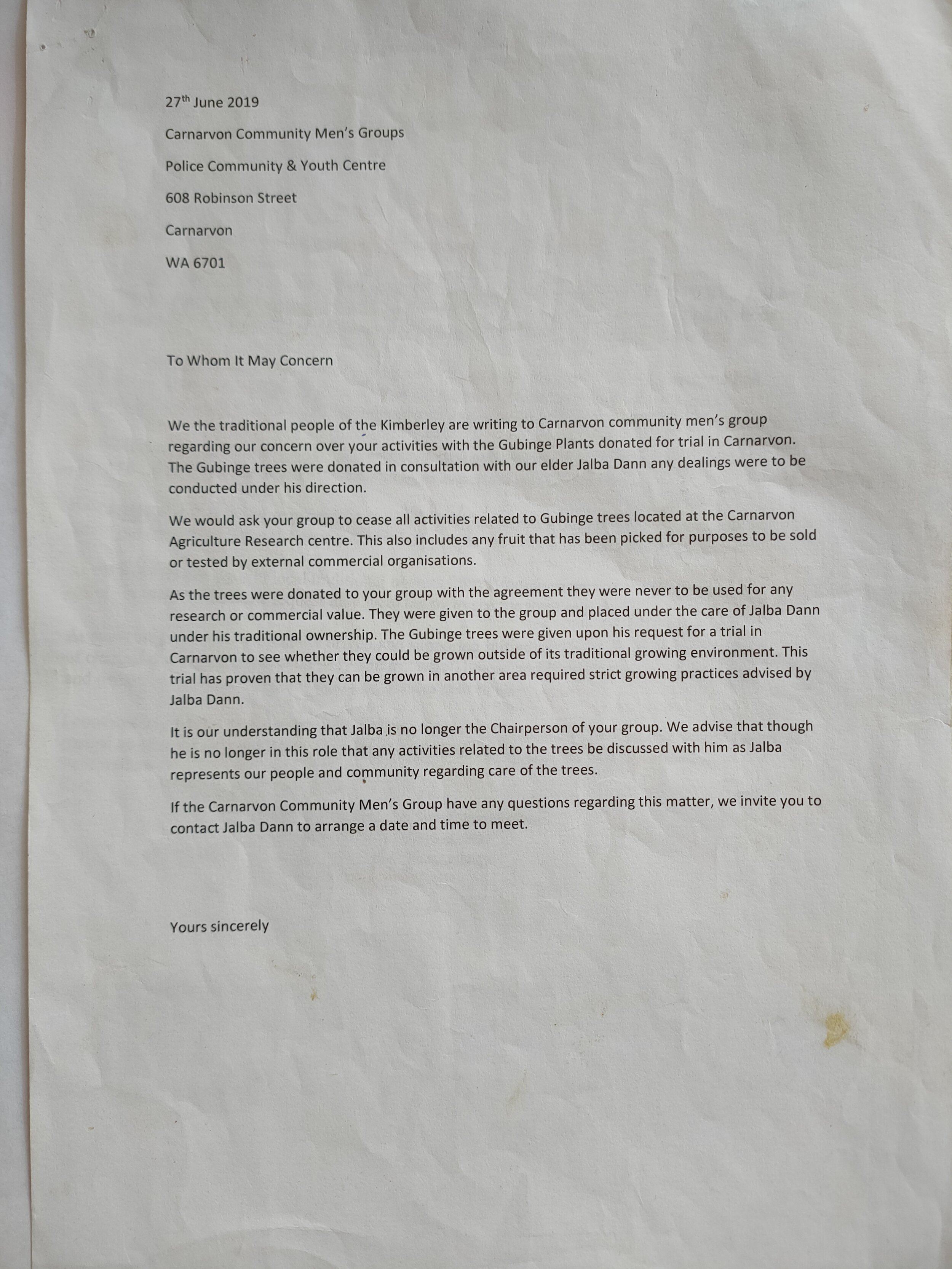
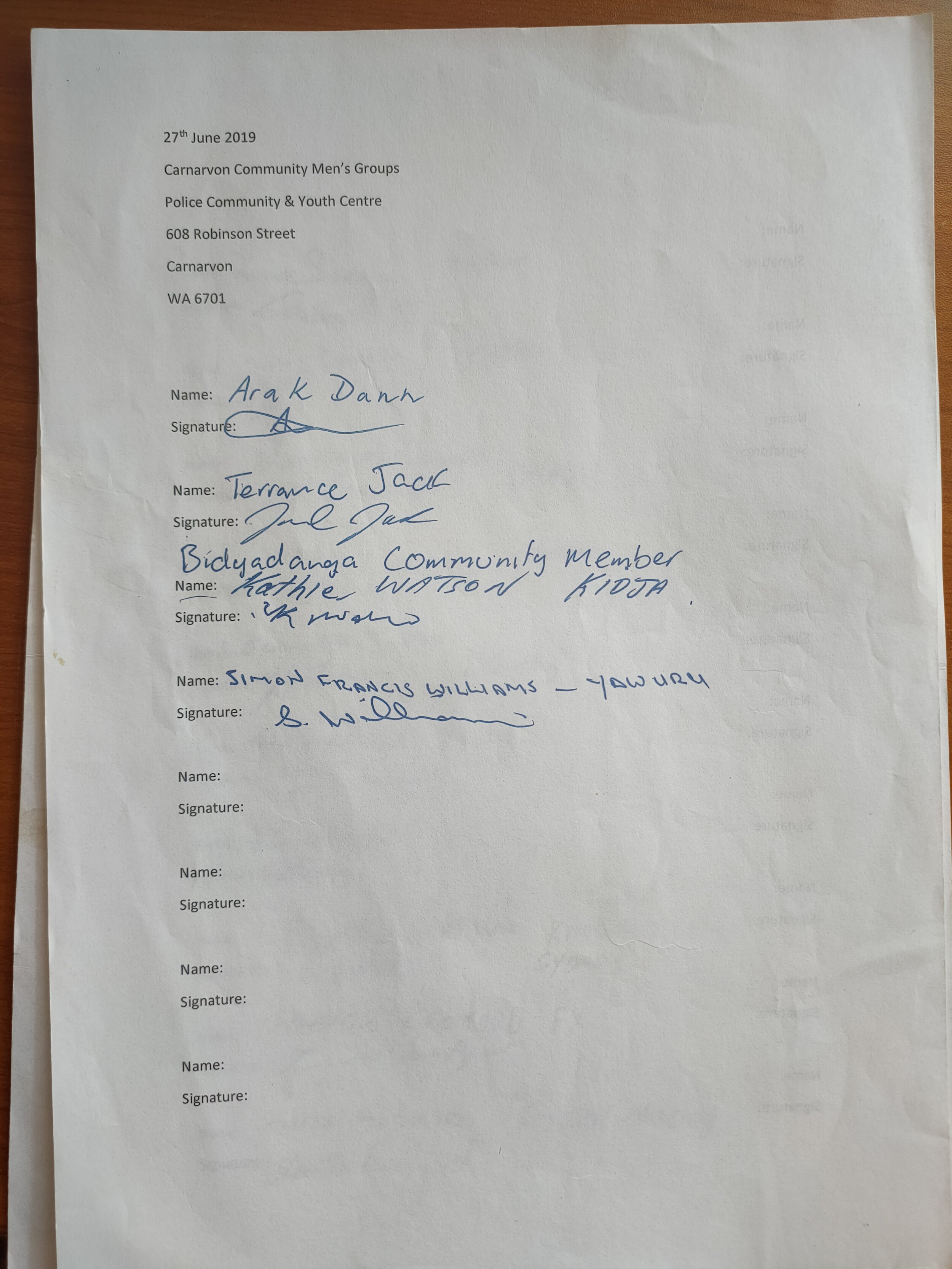
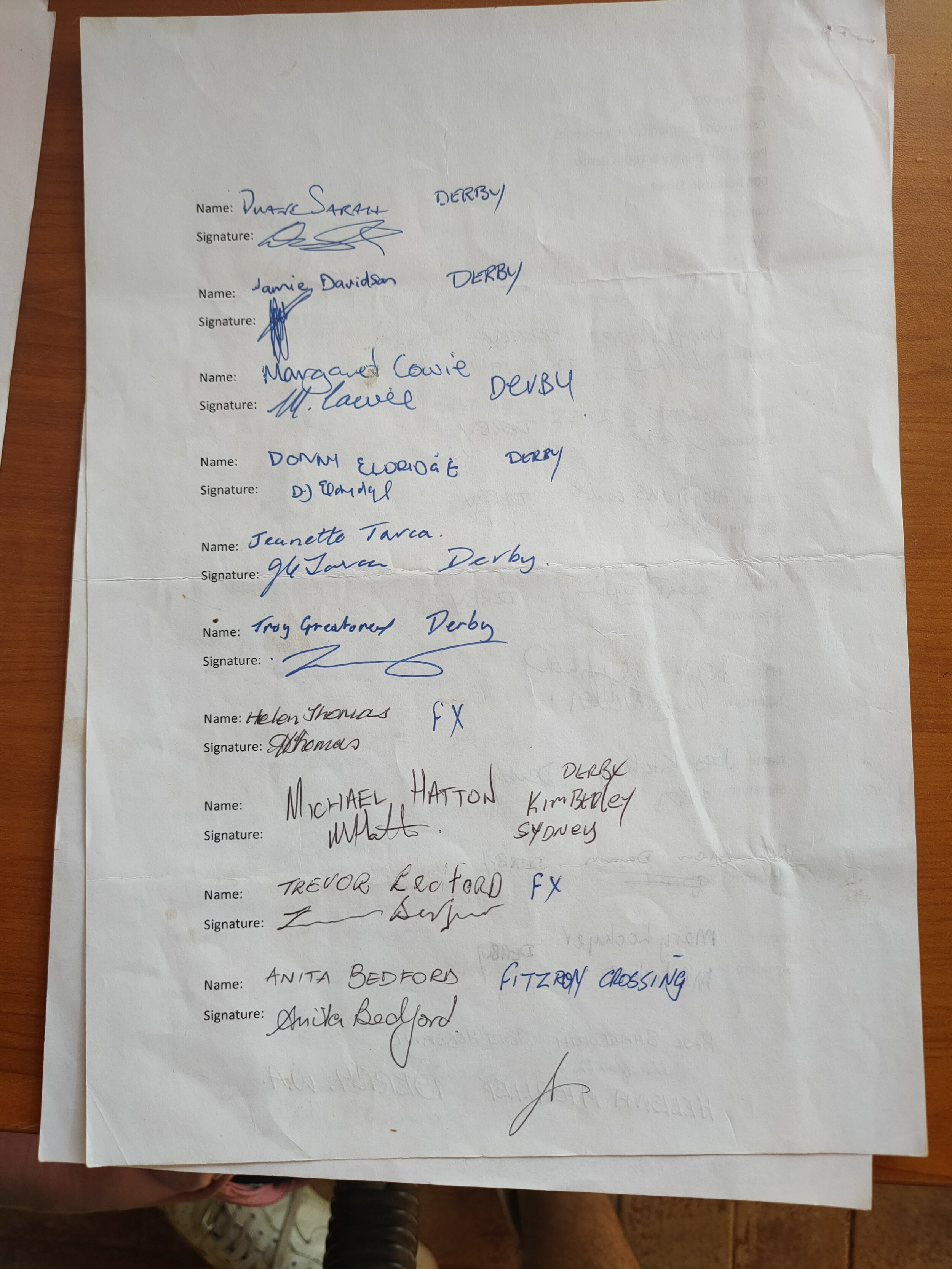
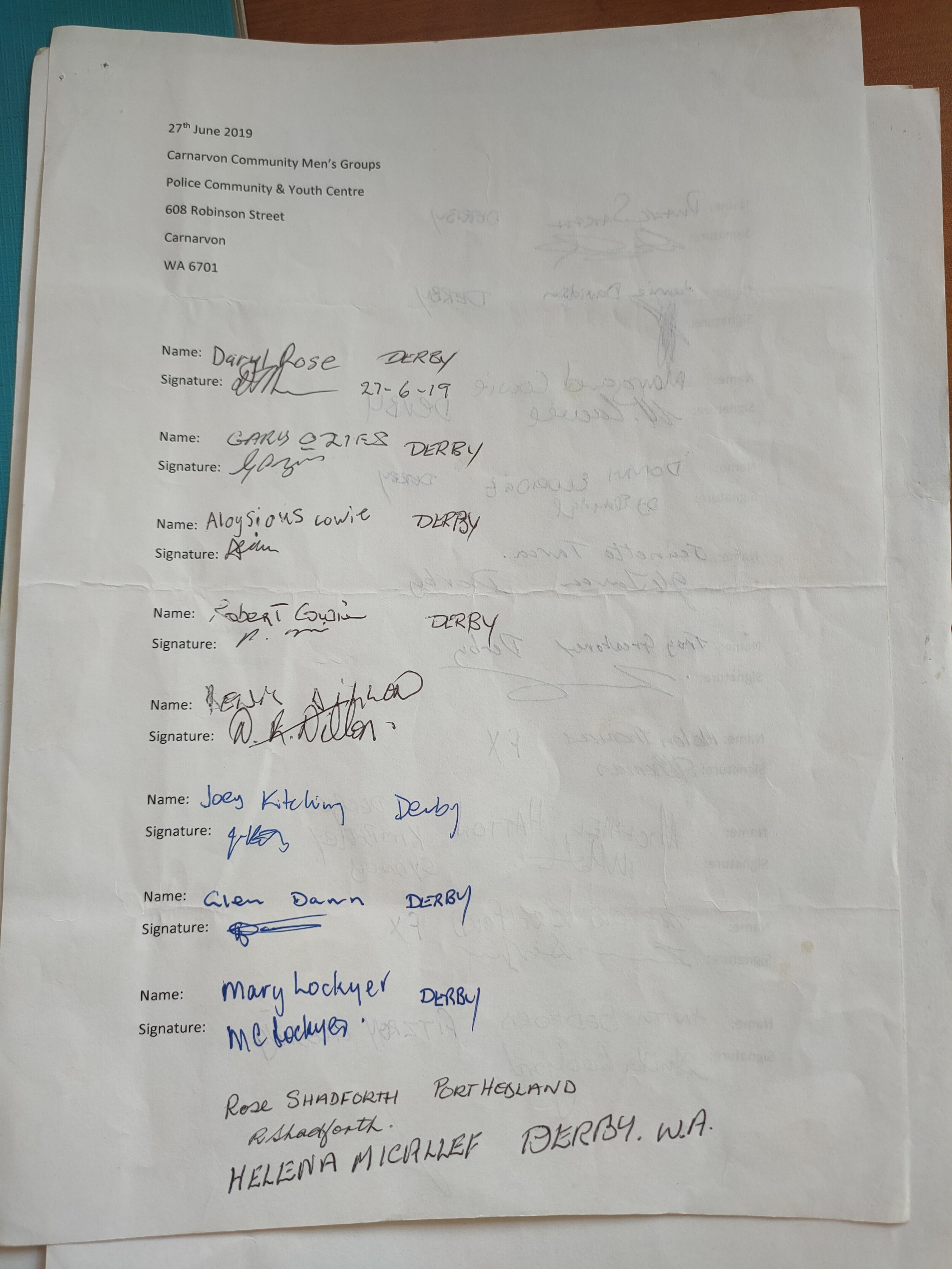
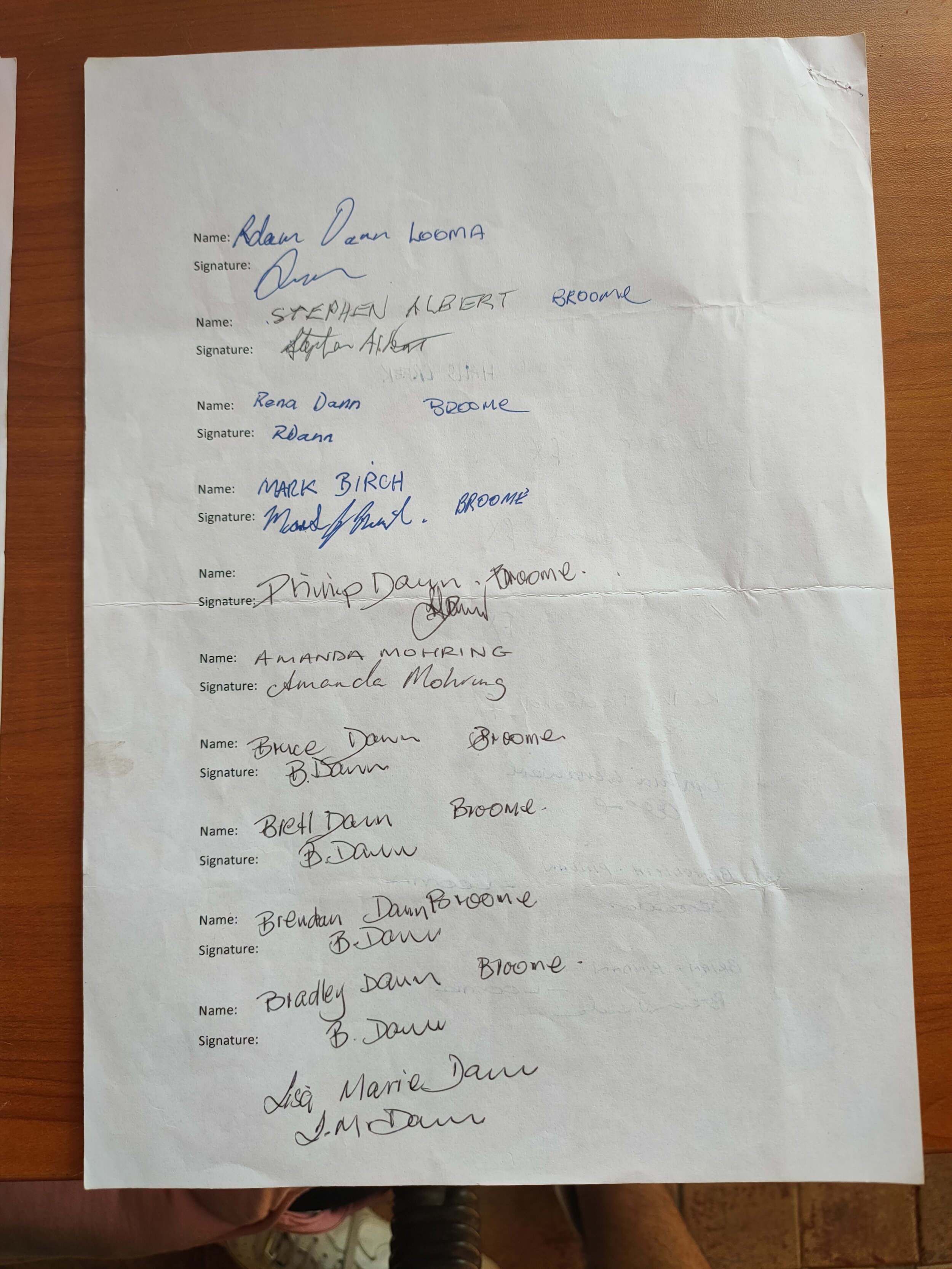
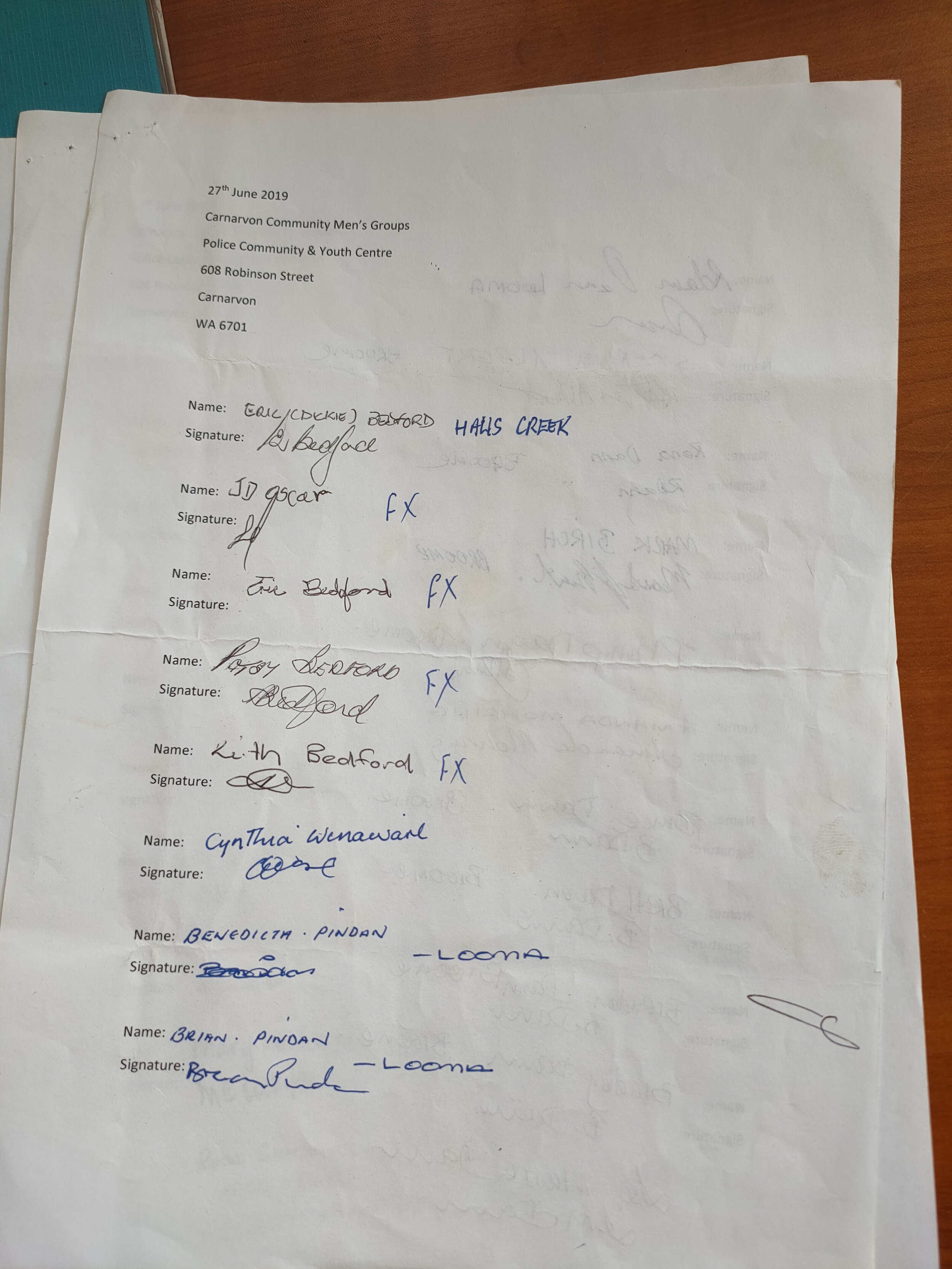
Letter labled a “joke” by chairperson of Men’s Shed (Source : Jalba)


